Working Papers
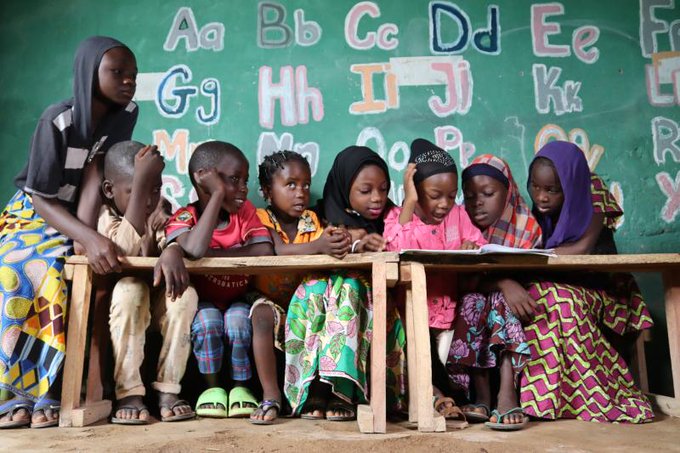
Instructional Alignment in Nigeria using the Surveys of Enacted Curriculum
Systematic, quantitative evidence on education system coherence is limited. Prior research has indicated alignment of instructional components, such as curriculum standards, assessments, and teachers’ instruction, is important for children’s learning.…
Read →
The Role of Social Influence in Enforcing Tax Compliance: Experimental Evidence from Nigeria
Economic development is linked with increased state capacity including the ability to mobilise domestic tax resources. For many developing countries, high levels of informality are a major constraint in this…
Read →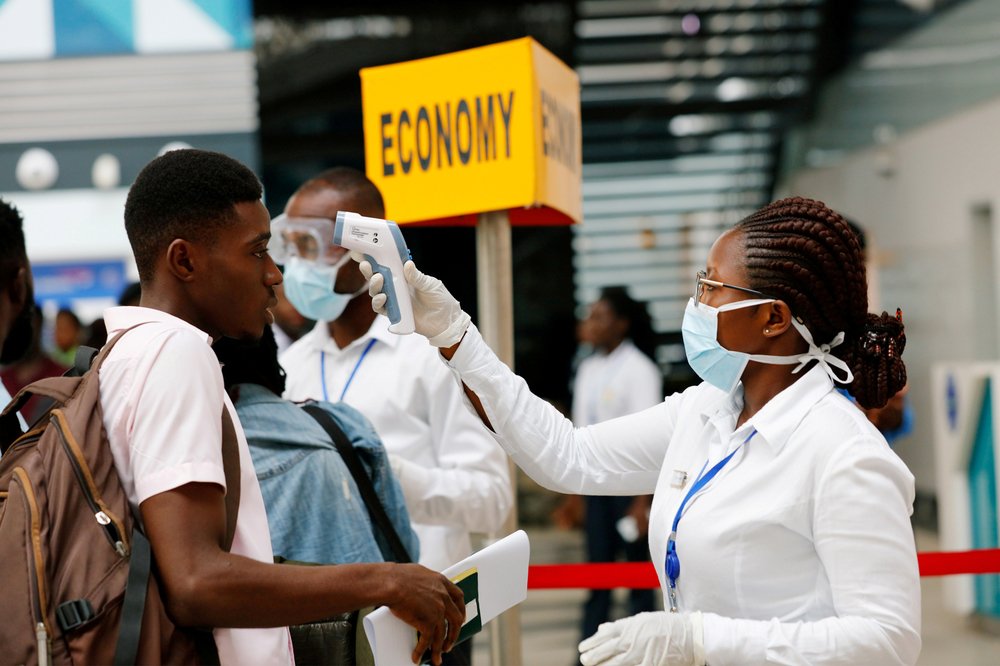
COVID-19 in Africa: The implications for macroeconomic and socioeconomic dimensions
The COVID-19 outbreak began in December 2019 in the Wuhan city of China and has continued to spread globally. As of this writing, 28.2 million cases have been recorded globally…
Download ↓ Read →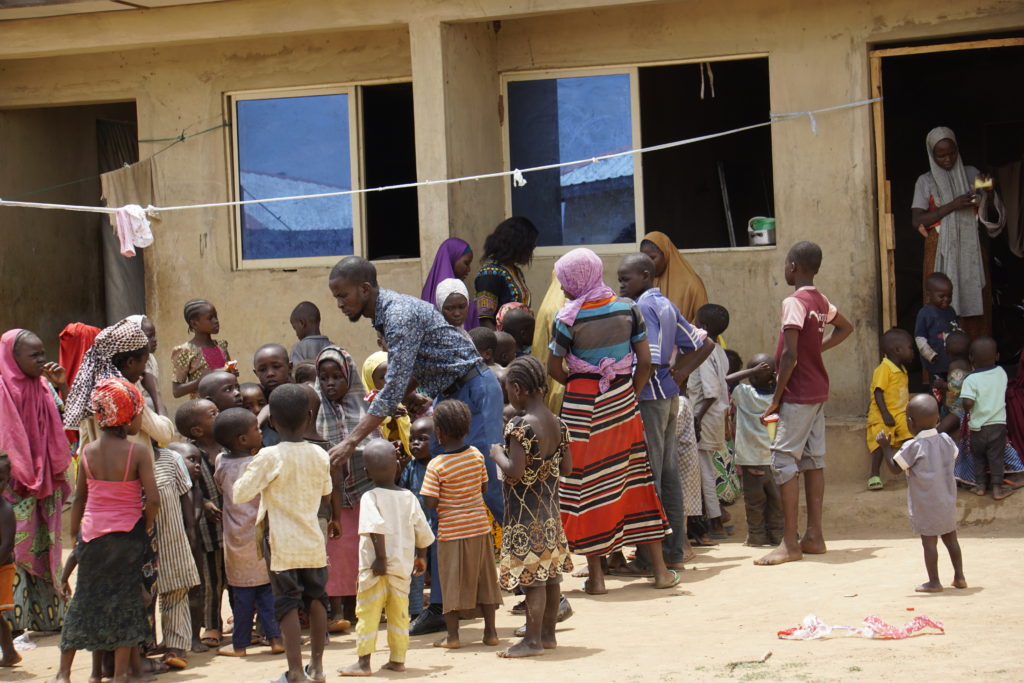
Is Nigeria Experiencing a Learning Crisis: New Evidence from Curriculum-based Learning Assessment
The massive expansion of education access throughout the world in the past few decades signalled a positive progress for global development through human capital accumulation. However, this same growth highlighted…
Download ↓ Read →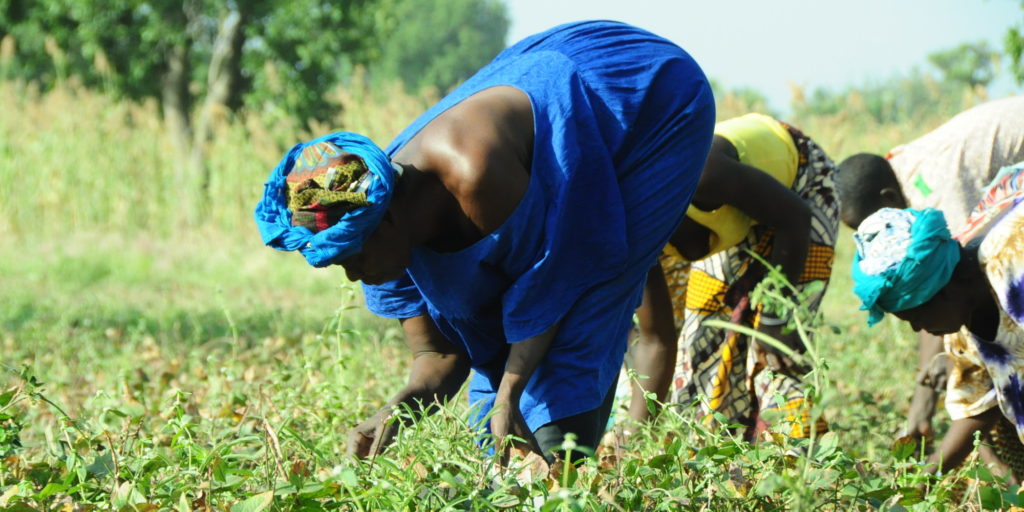
Efficiency of Food Reserves in Enhancing Food Security in Developing Countries: The Nigerian Experience
As a policy objective, the attainment of food security in Nigeria began facing challenges prior to independence when oil exportation began in 1958. But the challenges became pronounced and persistent…
Download ↓ Read →
The Subnational Political Resource Curse: Allocations, Internally Generated Revenue and Spending Priorities in Nigeria
Oil wealth comes with a caveat-depend on it excessively and be buffeted by oil market volatility. The 2014 oil price crash revealed that Nigeria did not heed this warning. The…
Download ↓ Read →
The Economics of Tobacco Control in Nigeria: Modelling the Fiscal and Health Effects of a Tobacco Excise Tax Change
The World Health Organization (WHO) emphasises that tobacco use is a significant hurdle to public health and development gains worldwide, as it imposes significant economic costs on countries both in…
Read →
SUSTAINABILITY IMPLICATIONS OF NIGERIA’S WATER USE PATTERNS
Nigeria has significant renewable water resources; however, the current reality is that most of it is poorly utilized and managed, thus raising important sustainability questions. There are several concerns associated…
Download ↓ Read →
Finance and Firm Productivity in Africa: Background Study from World Bank Enterprise Survey Data
Access to finance has been considered to be one of the important factors in influencing firms’ real activities and in promoting aggregates. However, literature on the relationship between finance and…
Download ↓ Read →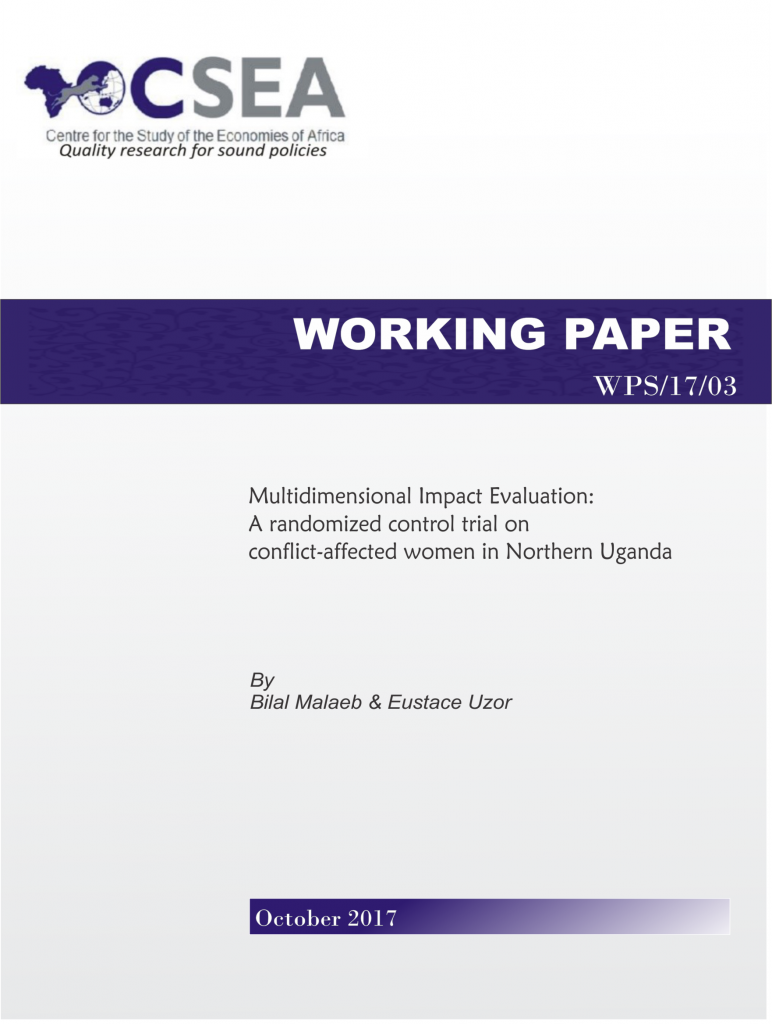
Multidimensional Impact Evaluation:
Ending (extreme) poverty in all of its forms everywhere around the world continues to dominate the International Development Agenda (UN 2015). However, while poverty is declining in much of the…
Download ↓ Read →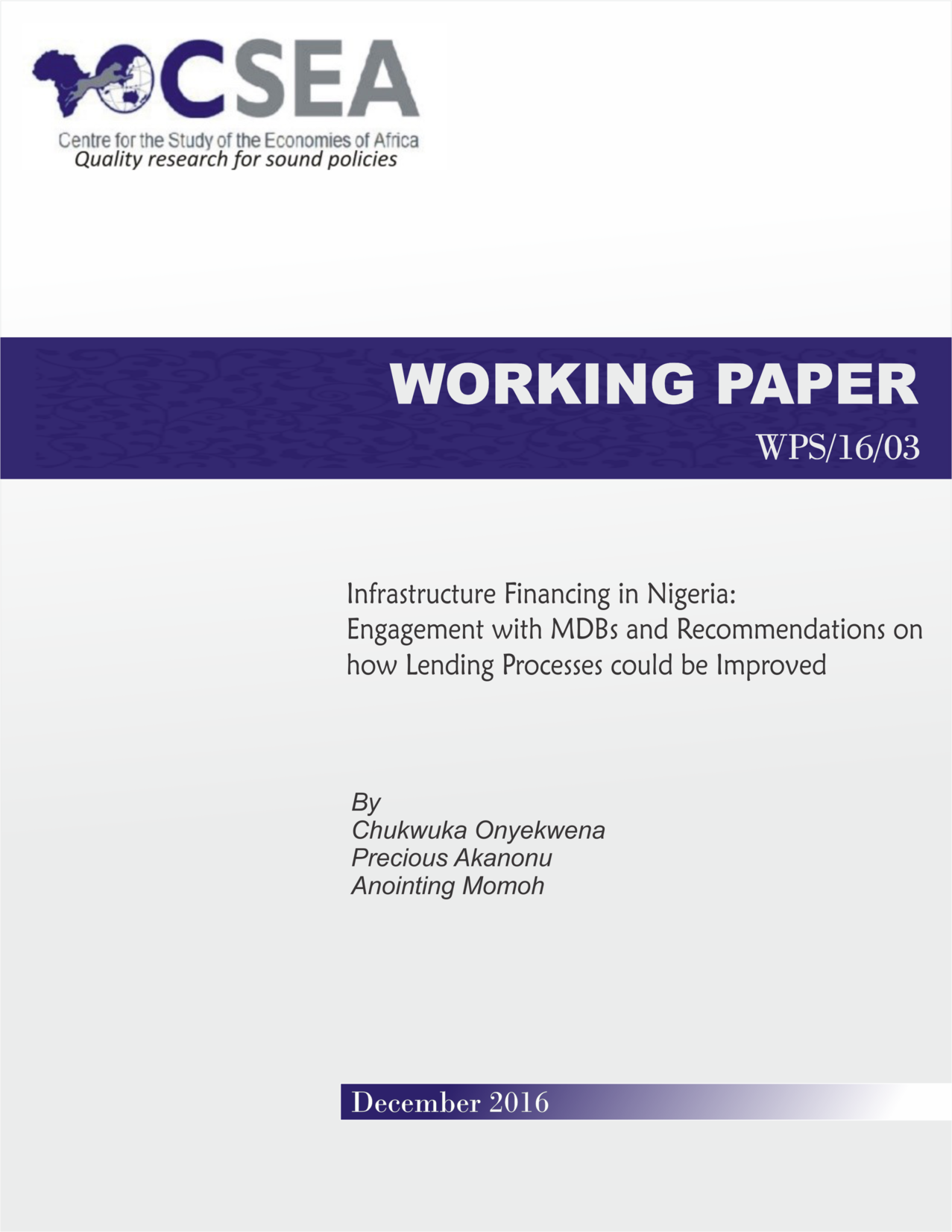
Infrastructure Financing In Nigeria:
Similar to most sub-Saharan African (SSA) countries, Nigeria has a huge infrastructure deficit which considerably limits efforts towards achieving inclusive growth, sustainable development, and poverty reduction. With infrastructure stock estimated…
Download ↓ Read →
Electrification in Nigeria: Challenges and Way Forward
Although electricity has been generated in commercial quantities in Nigeria for over a century, the rate of electricity infrastructure development in the county is low and power supply remains inadequate.…
Download ↓ Read →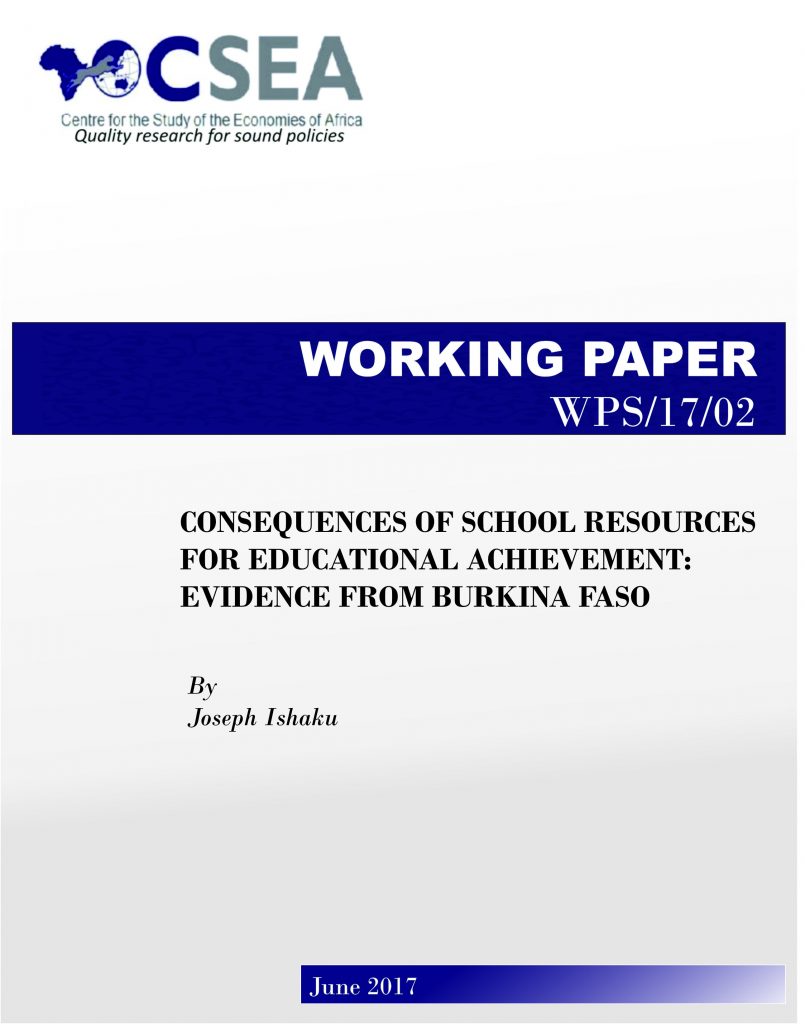
Consequences Of School Resources For Educational Achievement
This paper examines the determinants of educational achievement in a developing country context, Burkina Faso. We deviate from the extant literature by constructing an aggregate index of school quality from…
Download ↓ Read →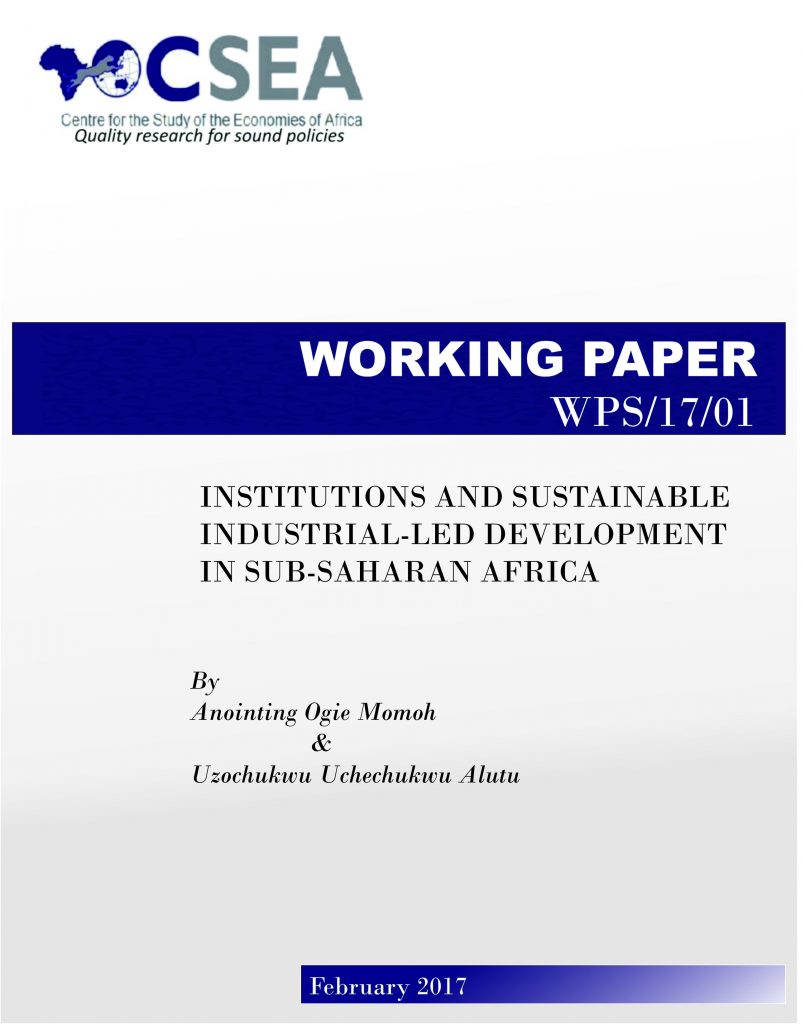
Institutions And Sustainable Industrial-led Development In Sub-Saharan Africa
In 2015, economic growth in Sub-Saharan Africa (SSA) slowed to 3.4 percent from 4.6 percent the previous year. The economic slowdown in the region was the result of an interplay…
Download ↓ Read →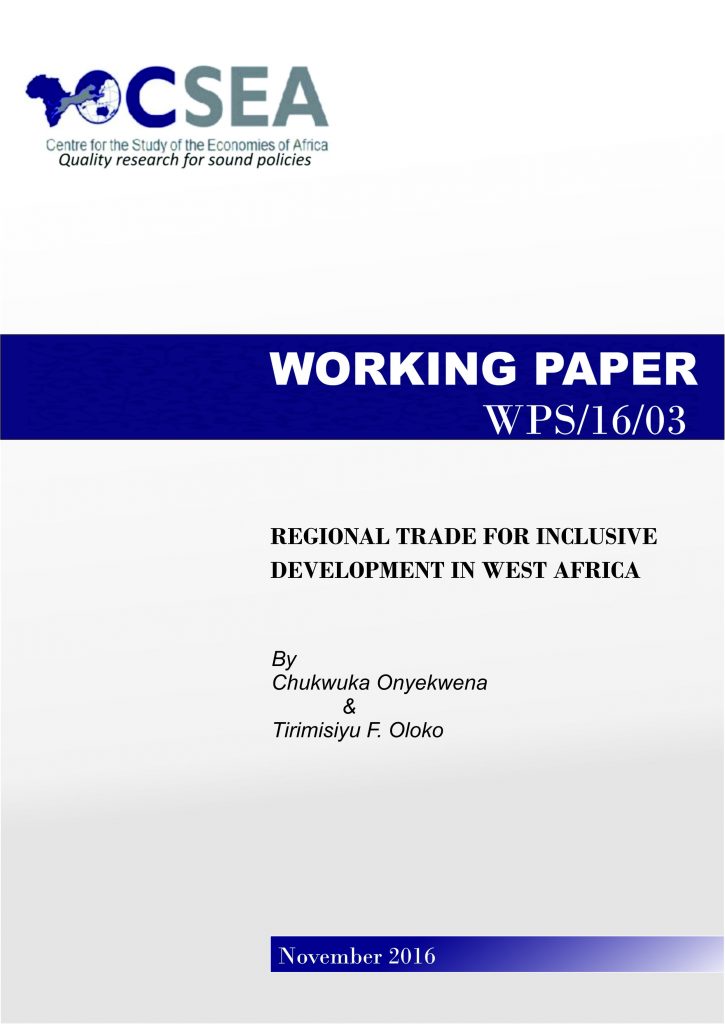
Regional Trade For Inclusive Development In West Africa
This study examines the potential of regional trade in facilitating the achievement of inclusive development in the West African region. It employs descriptive analysis to examine the nature, composition and…
Download ↓ Read →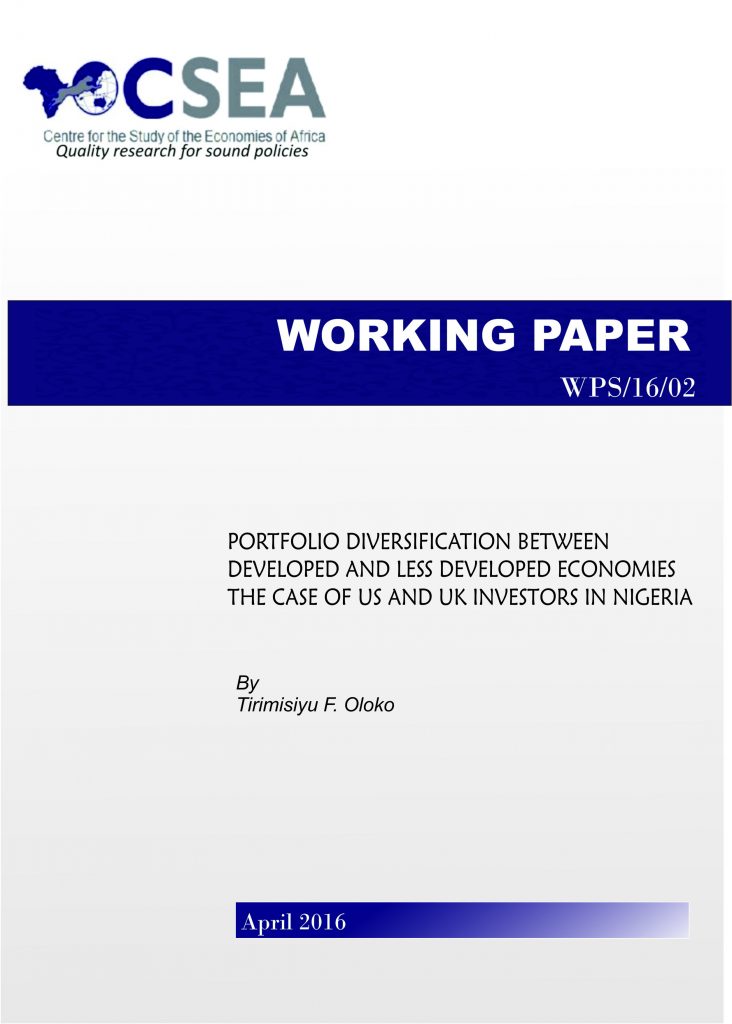
Portfolio Diversification Between Developed And Less Developed Economies
This study examines the hedging effectiveness of portfolio investment diversification between developed and developing economies; with focus on the Nigerian stock asset vis--vis the stock assets of the United States…
Download ↓ Read →